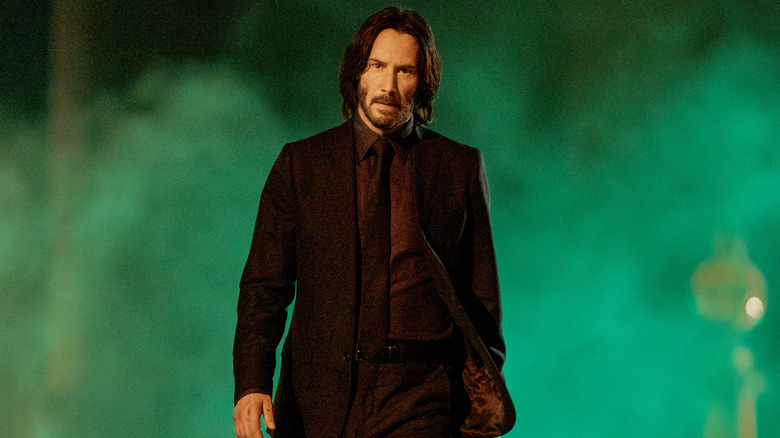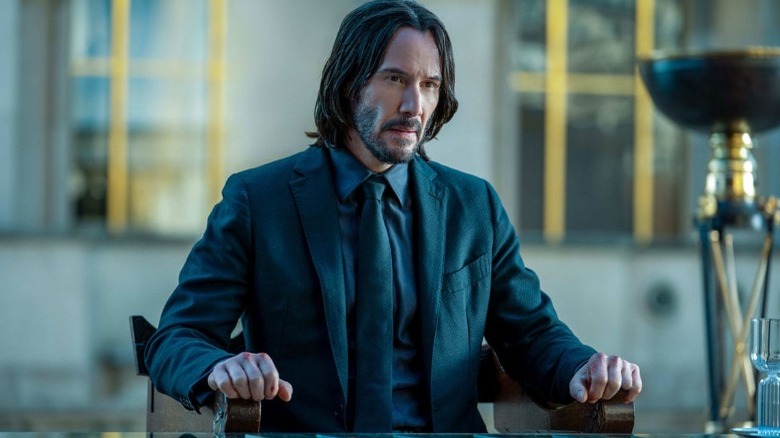John Wick: Chapter 4 Writers Say There's A Difference Between 'John' And 'John Wick' [Exclusive]
This post contains spoilers for "John Wick: Chapter 4."
John Wick is known by his enemies as "Baba Yaga," the man who you send to kill the Boogeyman. Others call him "Mr. Wick," giving a title to his position as a professional hitman. All he really wants to be known as, though, is simply "John," detached from the world of crime that he seems forever tethered to. "John Wick: Chapter 4" finally gives the character a chance to embrace that moniker, giving closure to his long journey to shed himself of his past.
"John Wick: Chapter 4" ends with Wick's allies Winston and the Bowery King (Ian McShane and Laurence Fishburne respectfully), looking over the grave of John Wick to pay their respects and give a final goodbye. In an interview with /Film's Vanessa Armstrong, screenwriters Michael Finch and Shay Hatten suggest that this isn't as sad as it looks, as the death of John Wick means that the man who was bound to the criminal underworld and all of its sins can finally move on from that life. It's purposefully ambiguous as to whether or not he actually died, but it doesn't matter. "John Wick" as we know him is gone, dropping his surname and adding it to his tombstone to become an anonymous "John" in either death or a completely new life.
John Wick may have to die
Michael Finch and Shay Hatten explain that there's a distinction between "John" and "John Wick," and the struggle to abolish one identity to accept the other guides the character's arc throughout the film. John Wick may physically fight a lot of bad guys, but this personal conflict is what the conclusion of the saga truly has to resolve. Finch describes the differences between the two sides:
"John Wick is fully under the thumb of the Table. John is a man who fell in love and had a relationship with this wonderful woman, Helen. We want the audience to understand that, and get behind him and experience this with him. There's a dichotomy there. He wants John to be free. He recognizes that John Wick may have to die, and so how's he going to get out of this one? It's a trap."
The screenwriter points out that the death of Charon, the New York Continental Hotel's concierge (played by Lance Reddick who tragically passed only a week before the film's release), contributed to this theme of life after death. It's worth pointing out that not only is "Charon" the name of the ferryman of Greek myth who ushers people into the underworld, he's also known for using the formal term "Mr. Wick." Perhaps his death, then, is a symbol of John ridding that part of his identity. On the other hand, Caine (Donnie Yen), the friend-turned-foe-turned-friend-again who reminds John Wick of his humanity and honor, calls him "John." And when John tells the Bowery King and Winston that he wants the words "Loving Husband" on his tombstone, he's sharing his desire to be at peace with his wife even if that necessitates his death. John Wick is deceased, but John lives on.

